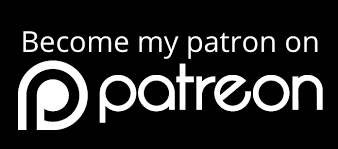It seems more likely than not that, in a short while, the Supreme Court will inflict a deep wound in public union organizing, and, ultimately, the power of organized labor in the workplace and in politics. But, just a small word on what silver lining could be found here–and I know my friends will perhaps violently disagree.
The case, for those who have not followed it, is called Harris v. Quinn. The legalistic explanation via SCOTUSblog:
Issue: (1) Whether a state may, consistent with the First and Fourteenth Amendments to the United States Constitution, compel personal care providers to accept and financially support a private organization as their exclusive representative to petition the state for greater reimbursements from its Medicaid programs; and (2) whether the lower court erred in holding that the claims of providers in the Home Based Support Services Program are not ripe for judicial review.
In English, a ruling for the Harris side–which is represented by the anti-union National Right To Work Committee–could, if it was a broad opinion, essentially say no one working in the public sector is obligated to pay union dues. Right now, every worker has to pay an “agency fee”, whether a union member or not, to pay for the representation that comes when a union, which has won recognition to bargain for state and local workers, does the work that ends up as a collective bargaining agreement. The idea seems simple: you can’t be a “free rider”, getting for free a benefit that others work hard to achieve. It has a long tradition in law going back four decades.
There’s a pretty good summary at SCOTUSblog of the case made in the oral arguments before the court.
So, let’s say the ruling is as bad as feared. It invalidates the agency shop, and eviscerates public unions, at the very least because those unions will lose millions of dollars in income to support collective bargaining and organizing. By extension, it will severely crimp union political power because the drop in financial clout will impinge on the ability to deploy people and write checks, which, in many ways, is the reason this case is the wet-dream for the right wing.
Here is what I would see as a silver lining. If you walk up to many public sector workers in any city and ask them, “what union do you belong to?”, many don’t know. Teachers probably are the most engaged, and, at least in New York City, I’d guess most transport workers in the subway and bus system know they belong to the Transport Workers Union.
But, AFSCME…not so much. There is only a vague understanding of who the union is, and what it does.
That’s been an endemic problem for a very long time. Union members don’t have the same connection to the actual institution that represents them–people don’t see the union hall as a place to gather–accept during contract talks or a strike. Mostly, union reps deal with members only when there is a grievance, conflict–not in the course of daily life.
If the SCOTUS decision obliterates the agency fee, it will mean unions have to go out and sign up a lot more people. The case will have to be made why the union matters–and why people should pay dues.
It’s hard work. And, in an environment of less income, the union will have to figure out how to underwrite a ramped-up effort to touch people. No way to minimize that challenge.
But, at the end of the day, if labor wants to live the rhetoric of changing society and creating a movement that is broad-based–down in the streets, on every block, in every community–this *might* force unions to do some work that was not always pursued.


